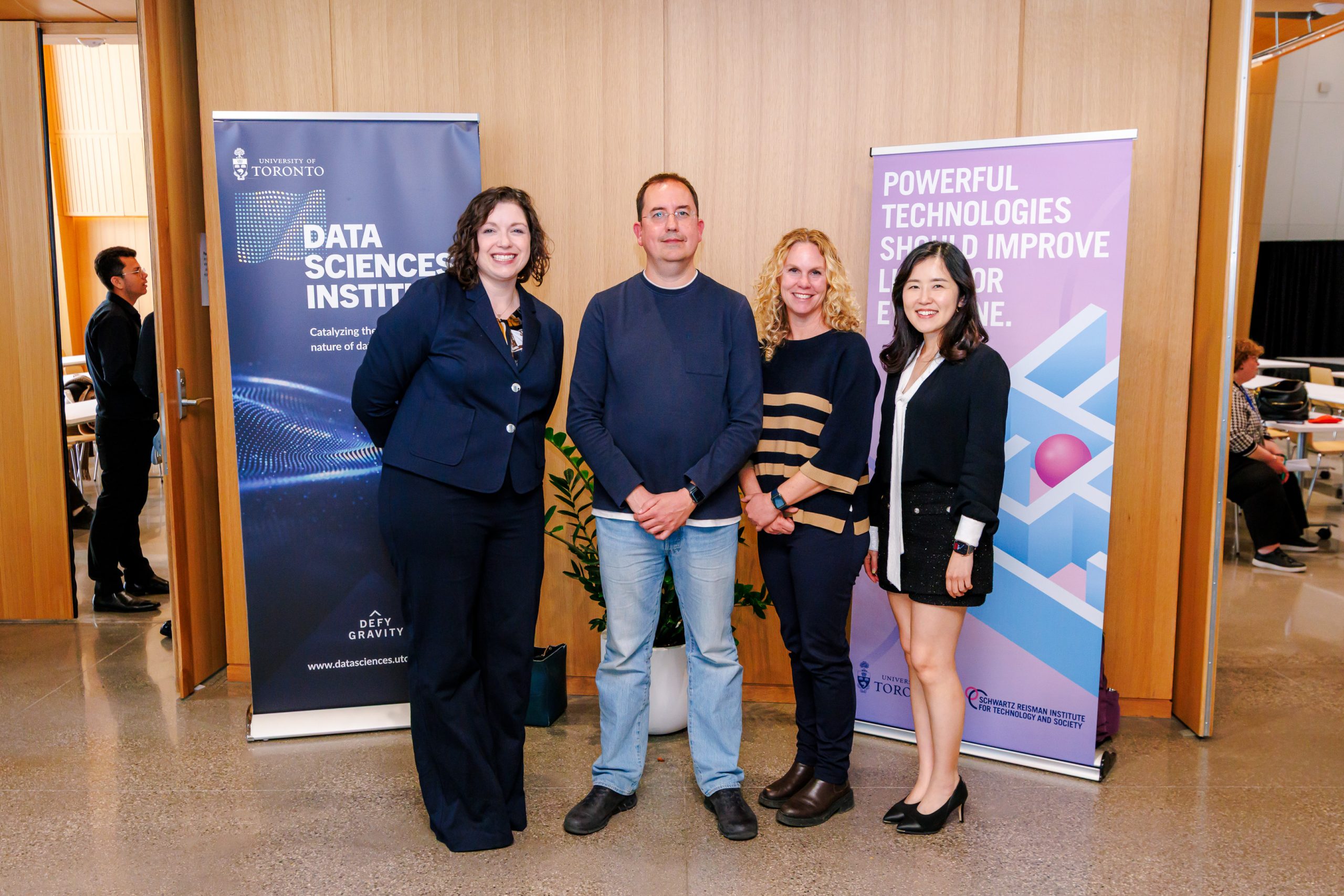Leading scholars, industry professionals and VR enthusiasts again convened at the second annual Questioning Reality: Explorations of Virtual Reality (VR) and our Social Future conference – a three-day conference to explore the future of virtual reality (VR) and its impact on social interactions in mediated environments, encompassing VR, augmented reality (AR), extended reality (XR), mixed realities (MR) and the next generation of AI driven immersive environments
Hosted by the Data Sciences Institute (DSI) — the University of Toronto multidisciplinary hub for data science innovation and collaboration — the conference was co-led by the DSI’s Bree McEwan, a professor in the Institute for Communication, Culture, and Information Technology (ICCIT) at the University of Toronto Mississauga and Sun Joo (Grace) Ahn, director of the Center for Advanced Computer-Human Ecosystems and professor at the University of Georgia.
“We look forward to welcoming new ideas, new synergies and discussion at this edition of Questioning Reality. With the AI boom, things that were not possible – even months ago – are now possible. We want to lean into this space and start this discussion of how generative AI can shape communication and interactions in immersive spaces,” said Ahn.
“The connection between VR and data science is intertwined to the extent that – when we get into investigating VR – everything is data,” noted McEwan.
“Our mission is to connect the people doing the work behind data science – engineers, computer science, data science etc. – with the people who are developing and exploring areas related to VR and its impact.”
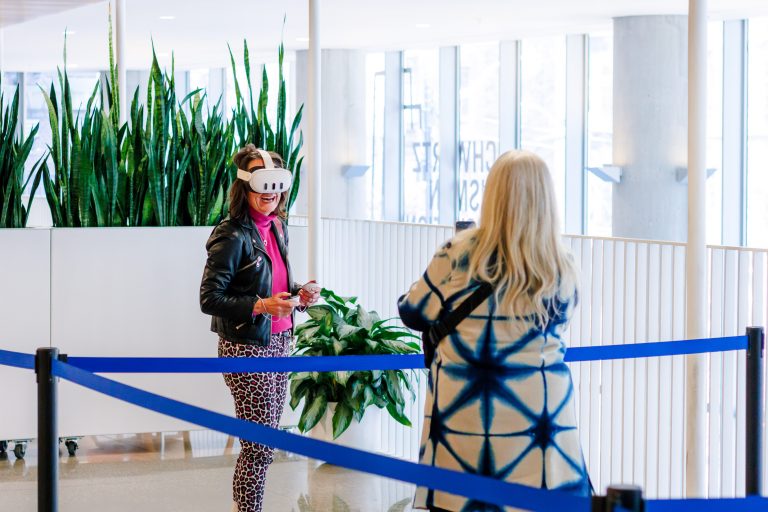
The conference began with a series of mini-grant lightning talks, featuring research teams that had received DSI grants following the 2024 Questioning Reality conference. Insights were shared into the effect of using VR to manage emotion regulation, perceptual conflicts during social interactions, and as a teaching tool – both for VR driven applications and as a method of educational delivery in virtual classrooms.
The panel included Josh Baldwin (University of Georgia); Eugy Han (Stanford University); Tim Huang (University of Pittsburgh) and Kristine Nowak (University of Connecticut).
“[Our] project examines how asymmetrical access to VR affects learning, engagement etc. for students,” said Huang.
“We have already produced some initial findings at individual level, for instance that people have better visual learning with VR but non-VR users have greater auditory gains and lower cognitive load, and we hope to learn more as our research progresses.”
The conference featured a keynote presentation on immersive work and collaboration in the financial sector by Dr. Blair MacIntyre, Global Head of Immersive Technology Research, Global Technology Applied Research, JP Morgan Chase.
In a talk entitled, Social XR and the Enterprise, Macintyre discussed immersive presentations for financial and wealth advisors, immersive counterspaces for mentoring meeting and supporting networks for use during hybrid conference experiences.
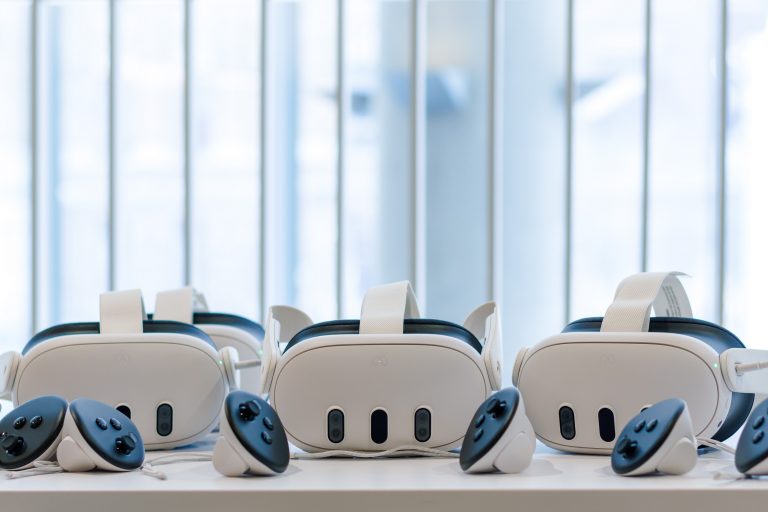
On day two of the conference, attendees were able to hear directly from panelists in government, philanthropic organizations and academic regarding their respective criteria for funding VR and immersive technology research.
The panel was comprised of Joshua Greenberg (Program Director, Digital Information Technology, Sloan Foundation), Alison Krepp (Social Science Program Manager, National Oceanic and Atmospheric Administration), Sylvie Lamoureux (Vice President, Research Programs, Social Sciences and Humanities Research Council) and moderated by Mia Wong (University of Colorado), a Questioning Reality Fellow.
“At Sloan, our north star is advancing scientific research,” said Greenberg. “Science is a social collaborative effort and after 2020 we began to think more intentionally in the foundation about remote social experiences. The question at Sloan becomes, how do we turn that into a program strategy, how do we understand human behaviour in immersive environments?”
“When I go back to my board and explain why we fund the DSI’s Questioning Reality, it is to explain how we are helping facilitate scientific advancement through technology.”
Questioning Reality is supported by the Alfred P. Sloan Foundation, a not-for-profit, mission-driven grantmaking institution dedicated to improving the welfare of all through the advancement of scientific knowledge. The grant was awarded to the DSI to delve into VR technology and its profound implications for human interaction and communication.
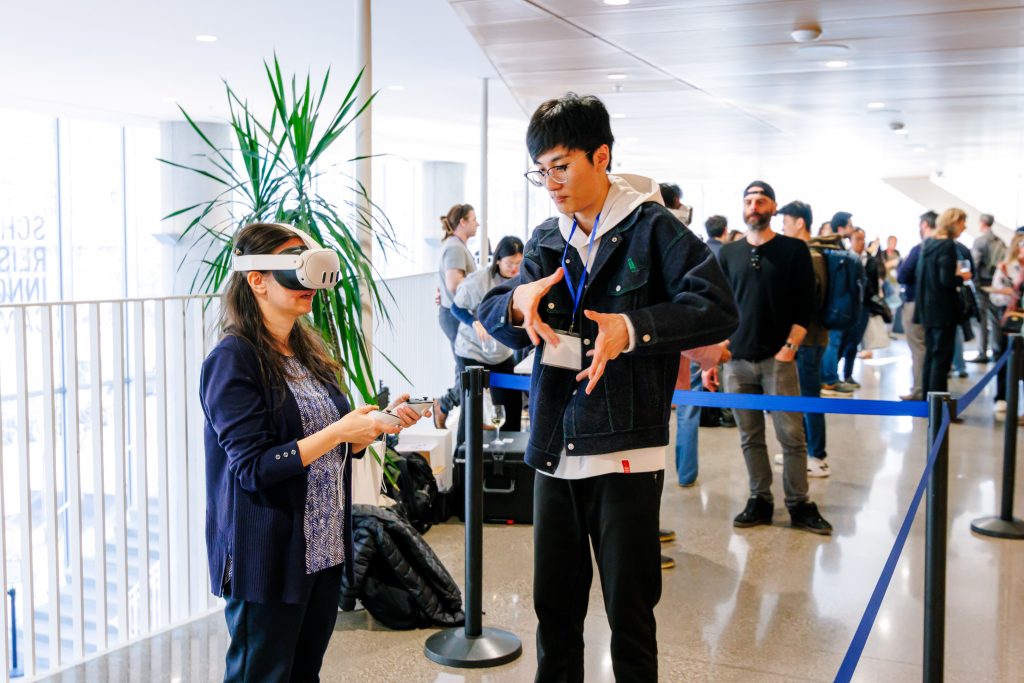
The second conference keynote was led by Dr. Pablo Pérez (Nokia eXtended Reality Lab, Madrid), and included a fireside chat with Grace Ahn and reception – co-sponsored by U of T’s Schwartz Reisman Institute for Technology & Society (SRI).
Topics of discussion included using VR and immersive technology for: remote learning and work; interaction and privacy with new users and immersive tech; immersive communication; AI & telepresence, as well as accessibility, health and remote assistance.
“The future that we envision is to create a reality where people that are far from each other can connect, to link local realities,” explained Pérez.
“As we try to shape our research to that aim at Nokia, we are always attempting to create a better way to connect, to create technology that helps the world act together.”
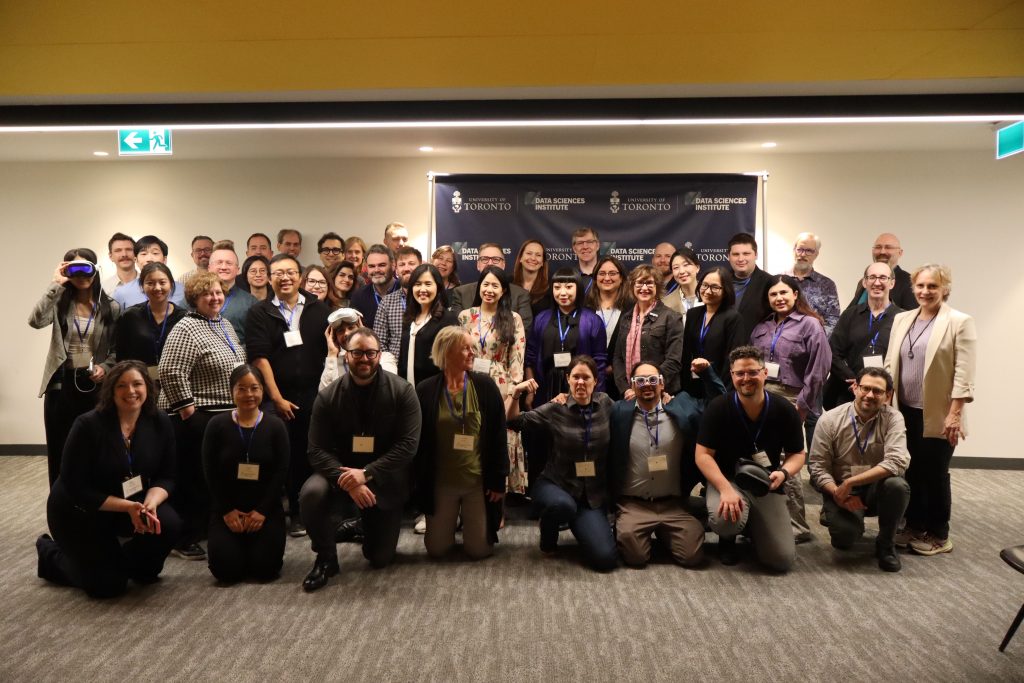
Photo: Questioning Reality 2025 attendees (credit: Data Sciences Institute)
A highlight of the final day of the conference was a panel discussion entitled, Building VR Labs. Panelists addressed the challenges of building VR labs and doing research with technology, as well as how to effectively balance research and marketing or operations needs at VR/ XR labs.
The panel included: Grace Ahn (University of Georgia), Tammy Lin (National Chengchi University), Tony Liao (University of Houston) and Kristine Nowak (University of Connecticut).
“The keyword [to building labs and centres] is sustainability,” said Ahn. “Most start-ups fail after their initial surge because once you get big, the amount of funding that is needed is enormous.”
“Once you go big, there is a lot of effort to sustain the organization and ensure you don’t implode,” she added.
“You have to think about how to grow an organization and stay nimble so you can pivot in a funding situation like we experience in universities. The vision of what you want to build needs to be deliberate.”
Photos: Justin Lenis Photography
Discussions from the conference will be reflected in a new edition of Debates in Digital Media focused on social virtual reality. Collaborative tams were formed to work on projects to be presented at future Questioning Reality conferences. The Questioning Reality conference and Sloan Foundation grant serve as a beacon of support and recognition for the DSI’s commitment to pushing the boundaries of knowledge and innovation in the data sciences.

